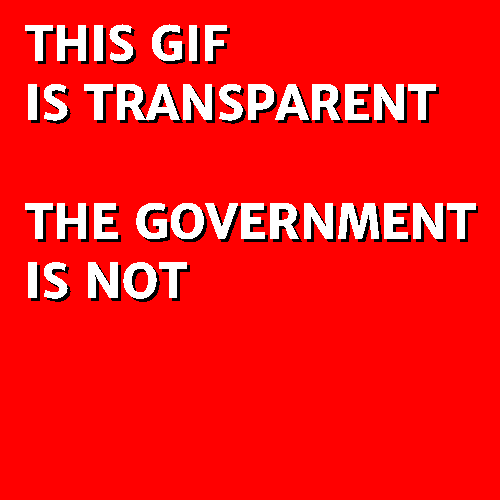|
Today we're talking about that T-word... Transparency. I get it, I really do. Not everything can be public knowledge. There are often times when plans in the works could be severely threatened if all details were released. Furthermore, no one likes to be micro-managed. However, if transparency were an innate part of government we wouldn't be asking (and at times demanding) for it today. The Freedom of Information Act (FOIA) was passed to institutionalize transparency in government. Under this Act, anyone can request records from a Federal government agency, and the agency must respond within a set time frame (usually 15 days) with the information or give rationale for why more time is needed or why the records cannot be produced. If there is a fee associated with acquiring such records, the agency must notify the requestor of the amount. Although FOIA applies only to Federal agencies, many state and local governments have adopted this as well, to their credit. However, this process can be lengthy and arduous, and by the time you actually get the information it may be irrelevant, or inaccurate, leaving you little power to influence a decision-making process (if that was the intent). Read more about FOIA here. So aside from FOIA, how can we facilitate transparency in local government? Participatory Budgeting. Participatory budgeting is a process in which members of the community come together to decide how to spend part of a public budget. This process can be facilitated by the local government, or a neutral third party. There are many ways to do this: 1) Organizations pitch proposals and the community members vote on them 2) Community members brainstorm projects and create a shared vision together which is then implemented. 3) Members of government work hand in hand with community members in a design-thinking capacity to test and re-test projects before submitting them to a larger vote. and many more... Overall, the idea is that multiple diverse voices determine the best use of funds and measures of success. This participatory mechanism fosters greater appreciation for the budgeting process and those who work to make it happen. It also increases civic awareness which may curtail misunderstandings in the future. Do you think this is something your local government could adopt? |
AuthorAdria is a community development consultant. She loves all things local and when she's not writing online you can find her enjoying the outdoors. Archives
January 2018
Categories |

 RSS Feed
RSS Feed
